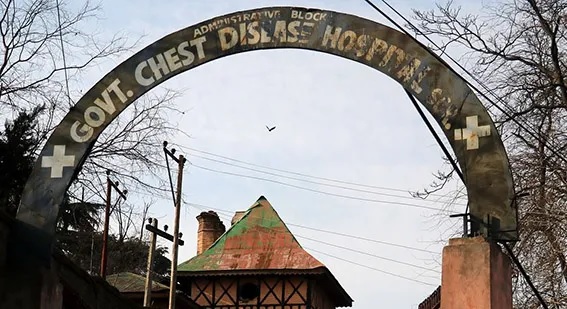Ganderbal, Mar 16: Director General of Border Roads Organisation (DGBR), Lt. General Rajiv Chowdhary, said that the early opening of Zojila and Razdan Passes will facilitate the supply of essential goods and services for the people of Ladakh and Gurez Valley.
After opening the strategic 434-kilometre-long Srinagar-Leh highway for trial basis, he addressed the media and praised the efforts of BRO and Project Vijayak Karamyogis for successfully opening Zojila Pass in just 68 days this year, compared to the three years it took last year.
The Lt. General also commended the work of both Project Vijayak and Project Beacon for clearing the snow in proper time, despite apprehensions of snow avalanches.
Clearing the Zojila stretch is a challenging job because of the accumulated snow, and working at such a height in such cold weather is difficult. He added that by opening the mighty Zojila Pass on the Greater Himalayan Range, the Border Roads Organisation added another feather in its already studded cap.
The Razdan Pass, which provides the only road connectivity between the Gurez Sector and the Kashmir Valley, has also been successfully reopened on the same day after a gap of just 58 days. Other important passes at Sadhna, Pharkiyan Gali, and Zamindar Gali have been kept open throughout this winter season.
The DGBR stated that the early opening of Zojila Pass will save the government approximately Rs. 7 crore a day and help to send defence equipment and troops to Ladakh.
He further added that the trial movement of vehicles has been conducted successfully, and the decision to open the road for civil traffic will be taken by the Civil Administration after the conduct of a joint inspection.
The function was attended by officials from the civil administration, including both Chief Engineers Beacon and Project Viyayak, SDPO Kangan Muzaffar Jan, Senior Manager Mega Engineering Infrastructure Limited (MEIL) Burhan Andrabi, and other officials of the administration.
The Zojila Pass is located on the Srinagar-Kargil-Leh road (NH-1) at a height of 11,650 feet and provides a vital strategic link between the Kashmir Valley and Ladakh region. In the past, the pass would normally be closed by October or November and only reopen in April or May, resulting in a total closure time averaging almost five to six months.









